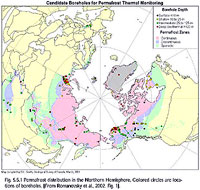Putin Adviser Sees Political Will to End Greenpeace Dispute

(Bloomberg – bloomberg.com – Henry Meyer – November 19, 2013) Russia is showing “political will” to end a two-month-long dispute over the prosecution of Greenpeace activists after they began to be set free on bail, President Vladimir Putin’s human rights adviser said.
“It’s a good sign,” Mikhail Fedotov said in a phone interview today from Moscow. “I hope the same will happen to the others.”
A court in St. Petersburg today released Brazilian Ana Paula Alminhana Maciel, seen here, on bail, a day after three Russian citizens detained during an Arctic protest were also set free, Greenpeace’s Russian branch said on its Twitter Inc. account.
A court in St. Petersburg today released Brazilian Ana Paula Alminhana Maciel, seen here, on bail, a day after three Russian citizens detained during an Arctic protest were also set free, Greenpeace’s Russian branch said on its Twitter Inc. account. Photographer: Olga Maltseva/AFP via Getty Images
A court in St. Petersburg today granted bail to a Brazilian, an Argentine, a New Zealander and a Pole, a day after three Russian citizens detained during an Arctic protest were also set free, Greenpeace’s Russian branch said on its Twitter Inc. account.
The legal moves have the potential to defuse a dispute that has pitted the world’s biggest energy exporter against the environmental organization after Russia detained 30 people for participating in a Greenpeace protest at an OAO Gazprom offshore oil platform in September. Russian authorities last week transferred 28 Greenpeace activists and two journalists from 18 countries to St. Petersburg from the port city of Murmansk, easing consular access to them.
Russia has faced worldwide protests and a legal claim from the Netherlands since it impounded Greenpeace’s ship and charged the campaigners with piracy, which is punishable by as long as 15 years in prison. Prosecutors then cut the charges to hooliganism, which carries a maximum sentence of seven years.
Good News?
“In the space of two mornings we have had good news and bad, and the good news comes with a warning,,” Kumi Naidoo, Greenpeace’s executive director, said by e-mail. “We still have no idea what conditions our friends will endure when they are released from jail, whether they will be held under house arrest or even allowed outside. What we do know for certain is that they are still charged and could spend years behind bars if they are convicted for a crime they did not commit.
Ana Paula Alminhana Maciel of Brazil was the first foreigner to be let out of prison following the release of three Russians: doctor Ekaterina Zaspa, photographer Denis Sinyakov and activist Andrey Allakhverdov. Another court in Russia’s second-largest city yesterday extended the detention of Australian Colin Russell by an additional three months.
St. Petersburg courts will decide in the coming days whether to grant bail in the remaining 22 cases.
Fedotov’s presidential human rights council last week asked the Investigative Committee to set free all 30 people on bail and is calling for the criminal charges to be dropped.
‘Diplomatic Means’
”Legally, the current situation is absolutely unfounded,” the Putin adviser said. “We need to get out of this impasse through diplomatic means and I have explained this to top Russian officials and ambassadors of foreign countries.”
The affair has provoked a diplomatic dispute with the Netherlands, which is suing Russia to force it to release the crew and Greenpeace’s Dutch-registered Arctic Sunrise ship.
U.K. Prime Minister David Cameron, 11 Nobel Peace Prize laureates including South African bishop Desmond Tutu and the chief executive officer of Italy’s Eni SpA (ENI) have also appealed for an end to the activists’ prosecution. Paul McCartney wrote to Putin last month, urging him to free the detainees.
The Greenpeace protesters scaled Gazprom’s Prirazlomnoye rig in the Pechora Sea on Sept. 18. A day later Russia’s Coast Guard boarded Arctic Sunrise in international waters and towed the vessel to Murmansk.
Greenpeace has vowed to target Gazprom and its partners. The Russian state gas exporter provides a quarter of Europe’s gas, including to companies such as Eni and Germany’s RWE AG. (RWE)
Gazprom plans to become the first Russian company to start producing oil in the Arctic offshore as soon as this year. Greenpeace activists scaled the same platform in 2012.
The activists include citizens of the U.S., Finland, Argentina, Switzerland, the U.K., Australia, Brazil, Canada, Denmark, the Netherlands, New Zealand, Ukraine, Russia, France, Italy, Turkey, Poland and Sweden, according to Greenpeace.
Article ©2013 BLOOMBERG L.P. ALL RIGHTS RESERVED. Article also appeared at http://www.bloomberg.com/news/2013-11-19/putin-adviser-sees-political-will-to-overcome-greenpeace-dispute.html
